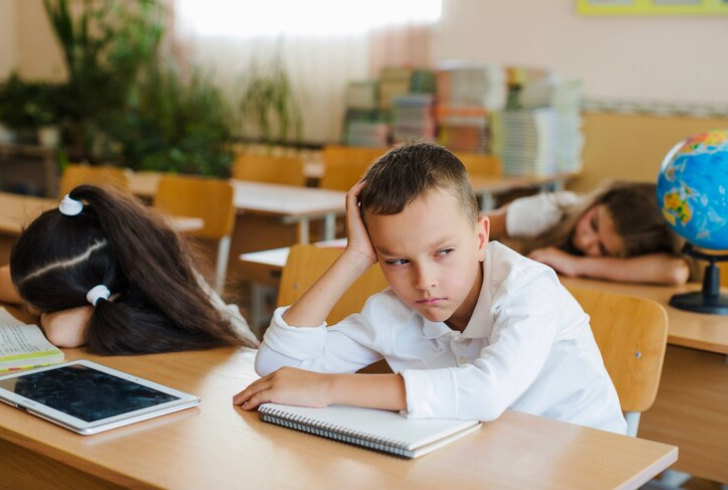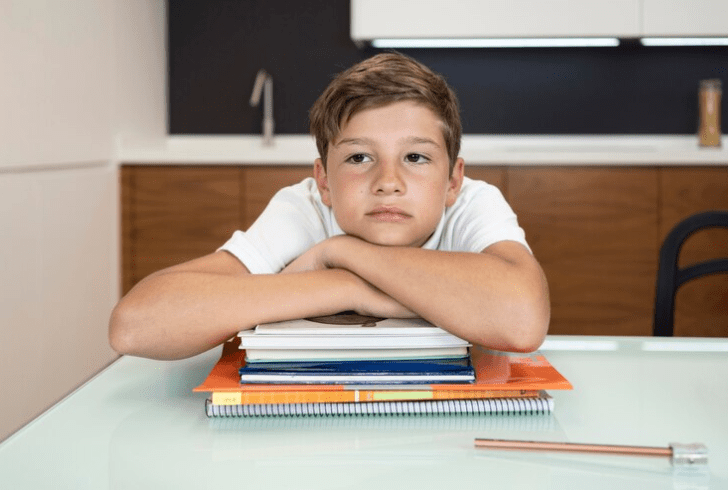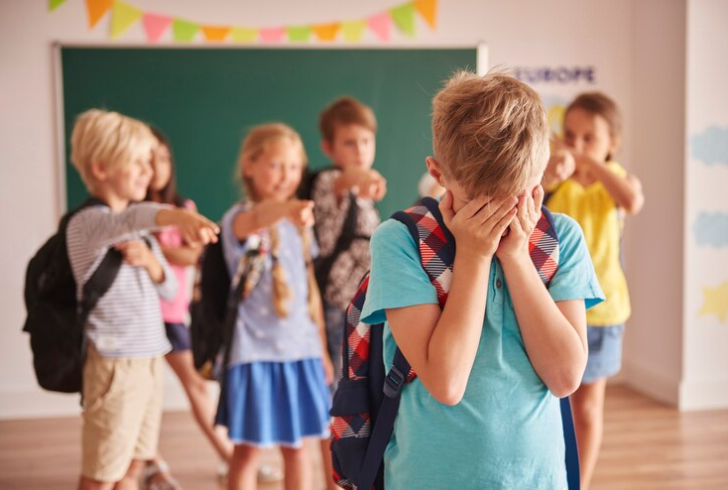School isn’t always sunshine and rainbows for kids. Maybe you’ve heard groans about early mornings, homework piles, or even full-on meltdowns about going. But why do kids hate school so much? This isn’t just about being lazy or disobedient. There are many reasons, from feeling overwhelmed in class to having trouble making friends.
By understanding these root causes, we can help kids turn things around and find a love for learning! So, let’s dive in and explore why school can sometimes feel like a struggle, and how we can make it a more positive experience for everyone.
The Reality of School Dislike
School Is Not One-Size-Fits-All
For many students, the traditional schooling system feels like a misfit for their learning style or interests. They find no value in the passive act of sitting through lectures and would rather learn through direct experience. The environment can also seem restrictive, limiting their ability to express themselves and explore their identity.
Challenges of Conventional Education
Some children struggle with the basic demands of school, such as sitting still for long periods or focusing on tasks without distraction. This can make the structured and disciplined nature of traditional education a source of significant frustration.

Image by freepik | Some children find it hard to sit still or focus in school.
For instance, consider a child who cries every morning because he dreads the school routine. Despite his efforts, he fails to thrive in this conventional setting, and only when classes transitioned online during a pandemic did he find his stride and begin to excel.
Core Reasons Why Children Might Hate School
Physical and Emotional Strain
Early Mornings: Being forced to wake up early and face a long day of academic pressure is daunting for any child.
Uniforms: Mandatory uniforms can suppress individuality and self-expression, making students feel constrained.
Long Hours in Class: Hours of confinement in a classroom can stifle children who crave physical activity and play.
Excessive Homework: Daily homework can overwhelm children, encroaching on their free time and contributing to burnout.
Frequent Testing: Continuous assessments can heighten anxiety and fear of failure among students.
Social and Behavioral Factors
Bullying: The presence of bullies can make school a terrifying environment for those who are targeted.
Restrictive Environment: The expectation for children to behave like mini-adults, quiet and compliant, can be unrealistic and stifling.
Authoritarian Teachers: Negative experiences with strict or unkind teachers can diminish a child’s enthusiasm for learning.
Separation Anxiety: Younger children especially might feel homesick or miss the comfort of family when at school.

Image by freepik | Younger children may feel homesick or miss family comforts at school.
Systemic and Structural Issues
Inadequate Readiness: Some children might not be prepared for the challenges of school, needing more time to adapt.
Nutritional and Physical Needs: Rushed meal times and restricted bathroom breaks can lead to physical discomfort and health issues.
Transportation Troubles: Long commutes and dealing with traffic add stress to the daily life of a student.
Health Concerns: Schools can be hotbeds for germs, which is a concern for children with weaker immune systems.
Psychological and Emotional Barriers
Handling Failure: Schools often lack programs that teach students how to cope with failure.
Fear of Judgment: Constant judgment, whether or, can erode a child’s self-esteem and happiness.
Cultural and Social Fitting: Issues like racism, discrimination, or struggling to fit in can affect a child’s school experience.

Image by gpointstudio on freepik | Challenges like racism and fitting in can impact a child’s school experience.
Alternatives to Traditional Schooling
Recognizing that traditional schooling may not be the best fit for every child, it’s important to explore alternatives that might align better with their needs and temperaments:
- Homeschooling: Provides a personalized education at home, allowing for a tailored learning pace and interests.
- Online Schooling: Offers flexibility and the comfort of learning from home, which can be ideal for students who thrive in a less structured environment.
- Charter Schools: These schools offer innovative curricula and teaching methods, which can be beneficial for students needing a different approach to education.
- World Schooling: Involves traveling and learning about different cultures, combining education with adventure.
- Unschooling: Focuses on letting children learn based on their interests, without a formal curriculum.
The question of why do kids hate school has many layers, including educational structures that don’t meet all children’s needs, psychological challenges, and lifestyle restrictions. Each child is unique, and parents and educators must understand and address the specific reasons why school might be a struggle for them.
By considering alternative educational methods and fostering a supportive dialogue around school experiences, we can better support our children in their educational journeys, ensuring they feel valued, understood, and equipped to succeed.